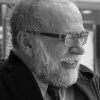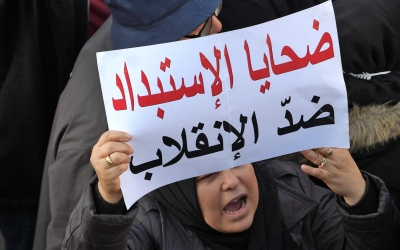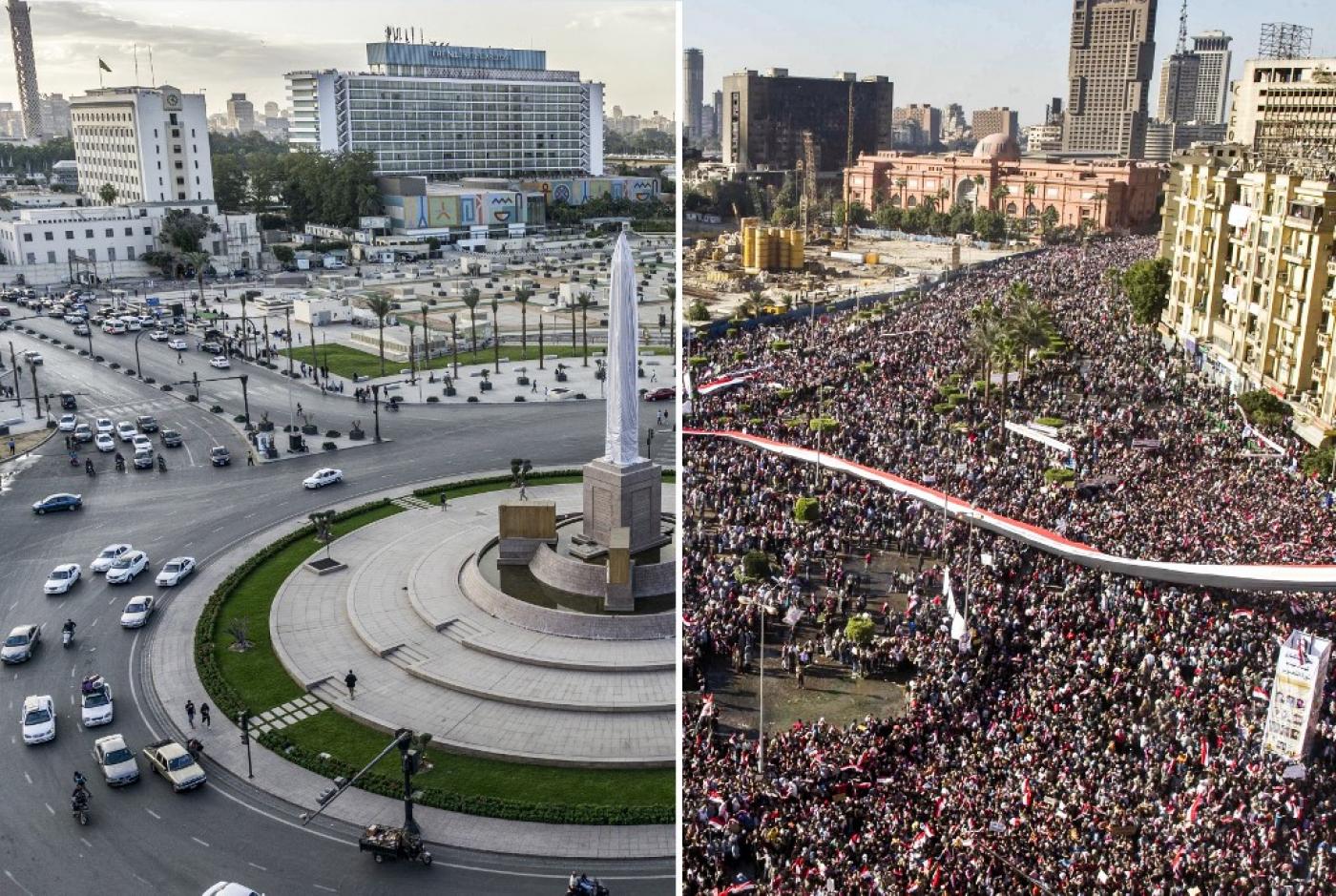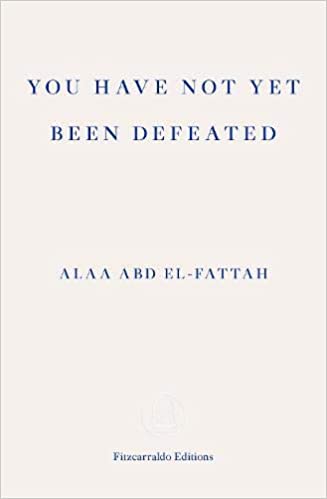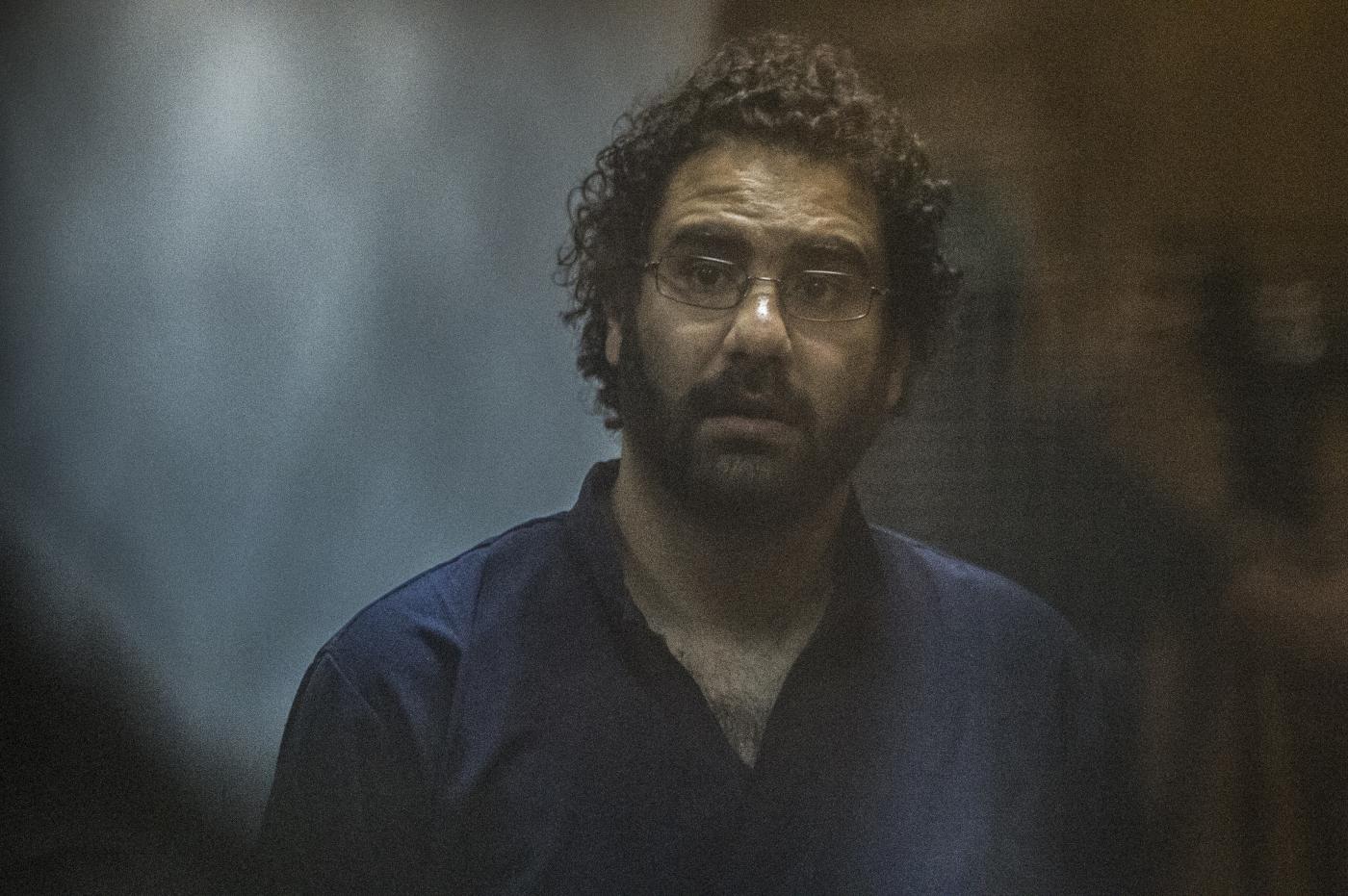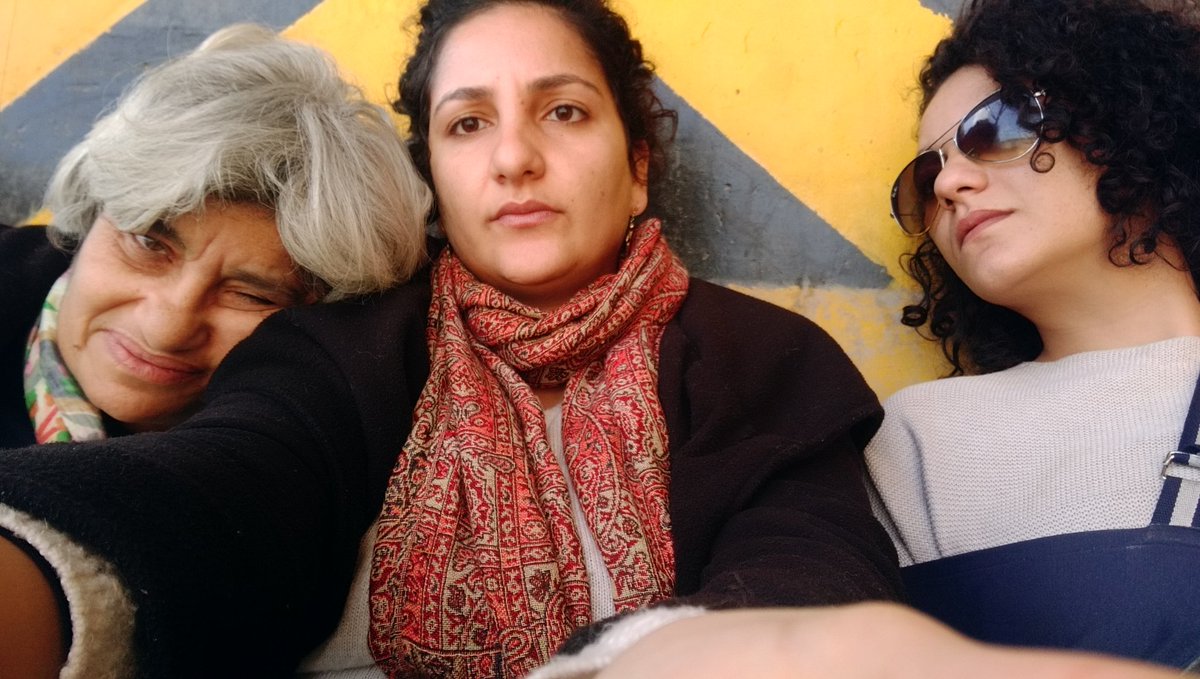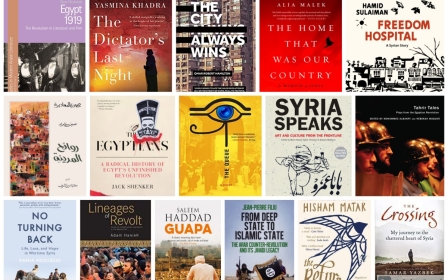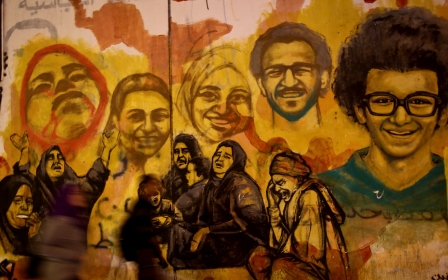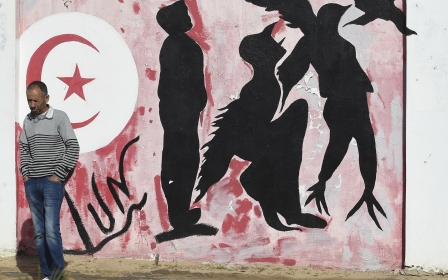Alaa Abd el-Fattah: The revolution has not yet been defeated
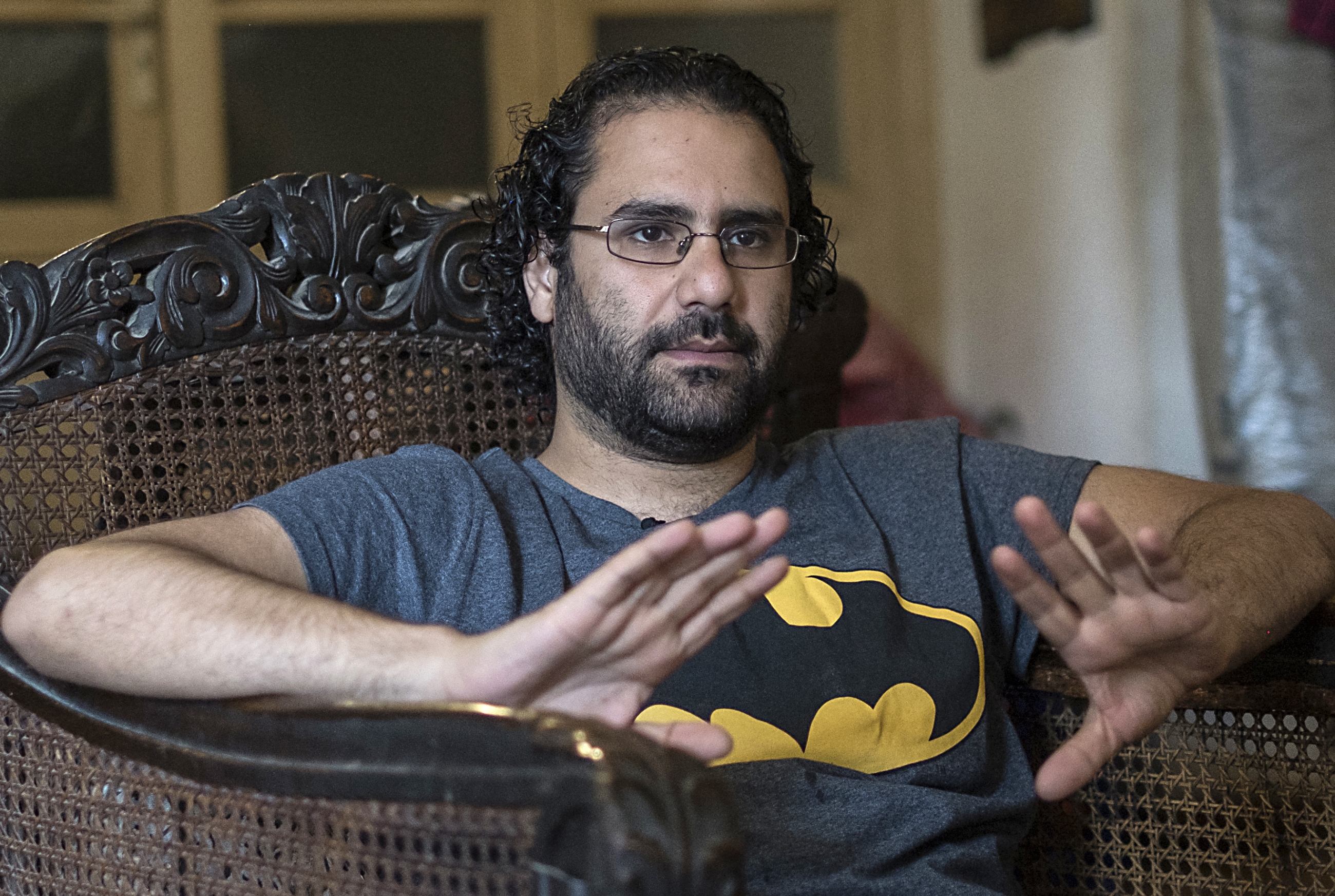
In Arabic and Persian - and most other languages in their neighbourhood - we have a body of literature we identify as adab al-sujun, or habsiyat, both meaning "prison writing". Among the classics of the genre is the philosopher mystic Ayn al Qudat al-Hamadani’s (1098–1131) exquisite text Shakwa al-Ghraib (The Stranger's Complaint) which he wrote while in jail in Baghdad, before he was executed on charges of heresy in his hometown of Hamadan.
The genre of prison writing is a well-rehearsed, well-versed body of literature for which we have a whole platoon of aging tyrants, forgotten shahs, robust military juntas, and psychotic tin-pot dictators to thank
Iconic figures like Mas’ud Sa’d Salman (an 11th-century Persian poet) and Khaqani Shervani made a whole poetic reputation out of their prison writings, while the legendary poet Abu Firas al-Hamdani (932–968) composed his signature collection of poetry al-Rumiyat while in captivity in Constantinople.
When it comes to jailing and torturing people to try to frighten, silence, and pacify them, Arab tyrants are second to none. Throughout history, they have had a reputation to uphold.
Among the more contemporary examples of the genre are the prison writings by major Arab literati like Sonallah Ibrahim and Abdul Rahman Munif, and women’s rights activist Nawal El Saadawi. The genre extends into visual and performing arts, such as the case of the iconic Egyptian feminist Marxist artist Inji Aflatoun (1924-1989), or Palestinian filmmaker Mai Masri, or Turkish Kurdish filmmaker Yilmaz Güney, or Iranian novelist Shahrnush Parsipour.
The genre of prison writing is therefore a well-rehearsed, well-versed, and variegated body of literature in our languages - for which we have a whole platoon of aging tyrants, forgotten shahs, belligerent mullahs, robust military juntas, and psychotic tin-pot dictators to thank and express our humble gratitude. Without our tyrants a major genre of our literary products would have been seriously compromised. Think of similar roles Latin American tyrants have played in production of magic realism and dictator novels in Spanish. What’s a Gabriel Garcia Marquez without an Augusto Pinochet!
Prison as a public sphere
Perhaps the most famous example of the genre of prison writing around the world is the Prison Notebooks of the Italian Marxist Antonio Gramsci, where he uses his dire circumstances in the dungeons of the Italian fascist machismo Benito Mussolini to write some of the most perceptive and celebrated philosophical reflections on the world he lived. Examples abound, from philosophical treatises by Boethius, to travel fantasies by Marco Polo are all in this genre.
But keeping the paramount example of Martin Luther King Jr’s "Letter from Birmingham Jail" (1963) in mind we must make a distinction between using the time in prison to write a book or treatise in philosophy and using the condition of incarceration as a particular mode of thinking and writing. The example of Primo Levy’s Holocaust memoir, If this is a Man/Survival in Auschwitz is a clear case that the writer can carry the terror of incarceration in his mind when no longer there to capture the soul of his sufferings.
With his newly released You Have Not Yet Been Defeated, a collection of the English translations of his prison writings, the Egyptian revolutionary activist Alaa Abd el-Fattah has followed this hallowed tradition and joined this pantheon of critical thinkers casting the web of their involuntary incarceration widely to think the character of our defiant soul in palpable prose.
"The text you are holding is living history," Canadian activist Naomi Klein writes in an introduction to this volume. "Many of these words were first written with pencil and paper in a cell in Egypt’s notorious Torah Prison, and smuggled out in ways we likely will never understand."
This "we" of course does not include Egyptians and millions of other Arabs and Muslims around the world who understand perfectly well how these words are written in their original Arabic and smuggled out. They have a whole history of the genre and the way it works.
Be that as it is, Klein’s introduction facilitates a more global reception for Alaa Abd el-Fattah’s prose that is good for the cause of freedom he and his comrades have waged. While in his own homeland and around the Arab and Muslim world he has become something of an iconic figure, facilitating a global recognition of him will expand the horizons (if not the depth) of his words beyond their immediate gestations.
Between tyranny and solidarity
The presentation of Alaa Abd el-Fattah’s writings in English is of course a welcome endeavor. “Here,” the editors of the English volume inform their readers, “for the first time, a collection of Alaa’s work is brought together, assembled and translated by his family and friends.”
This mediation between the original Arabic prose and the English translation traverses the space between the dirty business of tyranny and the polished space of liberal solidarity that can ultimately do very little more than heaping praise on the Egyptian revolutionary. The central significance of these writings remains in their original deliveries in the trenches of the revolutionary moment. It is the depth of that brutality that must inform the horizons of this global reception.
What is crucial for the rest of the world to understand is the cosmopolitan context and global disposition of the prose and politics they are reading. That liberating prose is on display from the very first pages of the essay where Alaa Abd el-Fattah refers to a crucial historic event, when on 26 June 1955 in Kliptown, Soweto, “thousands of people gather in a space much like our Tahrir squares, fanning out in a field to take part in the Congress of the People and to vote on the Freedom Charter. A revolutionary takes to the stage and poetically recites the charter. The packed square thunders with chants of ‘Africa! Africa!’”
The entirety of this book should be read in the echoes of that chant, "Africa! Africa!"
We must swing from that iconic moment to the speech that Alaa Abd el-Fattah delivers in English to tech companies in California where he lectures them about respecting the human rights of their users, before adding how cynical he is about any such prospects. “Companies are not really likely to do any of that. Corporations are not really likely to do any of that."
As a well-versed technologist, the Egyptian revolutionary is well aware of the perils and promises of that oscillation, between the organic solidarity that the internet can generate and the spur of the moment in which it can disappear into thin air.
Precisely in these oscillating terms, the collection reads like a live-action reportage of the 10 years of the revolution. What holds the prose together is the proverbial Egyptian sense of humour: “During Erdogan’s visit to Egypt, a joke did the rounds on the internet. Islamists, secularists and the military all aspire to ‘the Turkish model’ – which proves, goes the joke, that none of them know a thing about Turkey.”
Punctuating that sense of humor is the deadpan serious reportage of the most moving piece in the book, which is his short travelogue to Gaza in 2012, where he divides his prose into multiple surprises: Gaza is normal, Gaza is dystopian, Gaza is free. On these pages, Alaa Abd el-Fattah creates a para-public sphere in which his prison writings emerge as the most liberated soul of the new Egyptian citizenry.
From realist to idealist
A major theme in this collection is his preoccupation with drafting a constitution for Egypt in which the chaos of the revolution and the tyranny that had caused it yield to a just and peaceful resolution. In this domain Alaa Abd el-Fattah is fully aware of both his particular location and global context. "If you read Italy’s constitution, written in 1946,” he writes, “you will notice its writers were worried about the possibility of a return of fascism. Likewise, the Constitution of South Africa, written in 1996, is overwhelmingly concerned with addressing the effects of the apartheid system."
In truth, Alaa is the son of Tahrir Square. On the sacred ground of a nations’ democratic aspirations, he was born a symbol of a delayed defiance that shook the foundations of Arab dictatorship
From these two examples he concludes: "Modern constitutions are borne of the experiences and struggles of their people. Constitutions written in the wake of revolutions reflect the reasons behind the revolution, and the concerns of the revolutionaries.”
His contention is to transform the lived experiences of tyrannised people into the fabric of the new constitution. "So, does it make any sense that a constitution written following the eruption of the Egyptian Revolution doesn’t even mention the word ‘torture?” From this he concludes: "The 1971 constitutions declared torture an imprescriptible crime (i.e., not time-barred from prosecution). But its writers relegated the definition of the crime of torture to the law.
"So, the regime’s tailors cut and stitched the laws so that most of the Interior Ministry’s practices - even fatal ones – are tried as minor abuses, with sentences of ‘manslaughter’ or ‘wrongful death’ handed down in cases that should really topple entire security department.”
Here is where a realist becomes an idealist - from the depth of his revolutionary experiences emerges the need for the justice of the cause and the reconciliation that must pave the way to a democratic future.
Rethinking the Arab subjectivity
The writing of an Egyptian revolutionary at this point in the course of the cause to which he has devoted his life do much more than keep the proverbial spirit of the revolution alive. What is the use of that spirit if it is not doing something for the lived experiences of Egyptians and the rest of us around the world? His prose should therefore not be read as a liberal restoration of hope but as the delivery of a radical promise.
Alaa has turned the dark prison space of his jail into a bright public sphere where he is far more liberated inside his solitary cells than he would have been freely floating in the streets of Cairo
Alaa Abd el-Fattah comes from a distinguished family from both sides of his parentage. But in truth he is the son of Tahrir Square. On the sacred ground of a nation’s democratic aspirations, he was born a symbol of a delayed defiance that shook the foundations of Arab dictatorship.
In its most recent gestation, the defiance began in Azadi Square in Tehran in June 2009, and less than a year later spread to Tunisia and Egypt and the rest of the Arab world, and from there travelled to Turkey and flowered in the Gezi Park protests.
These were all integral to a global momentum that included the Occupy Wall Street uprising in the US and the rest of the Western Hemisphere. All of that could not have been in vain.
What is ultimately evident in this volume are the particular resonances of how the revolutionary disposition of nations has shifted away from what in my work on Arab revolutions I have called an epistemic shift from total to open-ended revolutions.
Here we are no longer waiting for a Homeric bravura ending to our story but are busy with a Bakhtinian dialogue in which the drama of the revolution unfolds with us as the authors of our own destinies. In these terms, Alaa Abd el-Fattah’s significance is not just in the prose of a revolutionary disposition he has authored, but the public happiness it causes.
There is a defiant joy about his prose. He has turned the dark prison space of his jail into a bright public sphere where he is far more liberated inside his solitary cell than he would have been freely floating in the streets of Cairo. In his defiant prose, in the new Arab personhood he exemplifies, Alaa Abd el-Fattah is a living testimony that the Arab revolutions have been a resounding success.
The views expressed in this article belong to the author and do not necessarily reflect the editorial policy of Middle East Eye.
Middle East Eye propose une couverture et une analyse indépendantes et incomparables du Moyen-Orient, de l’Afrique du Nord et d’autres régions du monde. Pour en savoir plus sur la reprise de ce contenu et les frais qui s’appliquent, veuillez remplir ce formulaire [en anglais]. Pour en savoir plus sur MEE, cliquez ici [en anglais].


